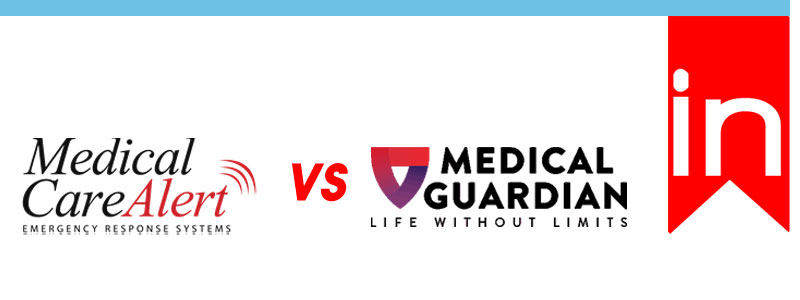Medical Care Alert vs Medical Guardian
Medical Care Alert and Medical Guardian are both extremely similar to each other. From their prices to their products, the companies are so close, seniors could use either one and still end up with basically the same results. But, there are still a few differences between them, including the fact that Medical Care Alert is still relatively new to the business of medical alert systems as the company started in 2008. Even then, Medical Guardian was founded in 2005 so a 3-year difference isn’t that great. That leads us to dig deeper and try to find the aspects that make them unique from each other below, as well as highlighting their positive similarities.Other Vs Head to Heads you might be interested in:
Medical Care Alert
Medical Care Alert is now known by its clients and other consumers as the company that took off without even knowing a lot about the medical alert system industry. They have great reviews for their customer service, GPS tracking, and response times to medical emergencies. The company is well put together and is overall a decent choice for a medical response system.Home Systems
Medical Care Alert has two variations of their home system; one has a landline connection and one is a cellular connection. Both home systems come with a base unit that has two-way communication and a waterproof emergency button on a wristband or pendant worn around the neck. Both have a 72-hour backup battery and there is available fall detection if the user pays an extra $10 per month. = Landline system price starts at $27.45 per month while the cellular system starts at $34.02 per month.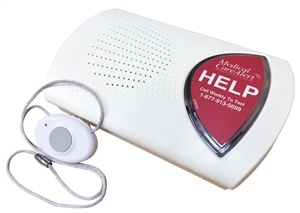
Home & Yard System
This system is similar to the home systems, but it’s made for seniors who have a larger expanse of property to walk around on. For example, it comes with a basic home unit and a wearable device (either on a lanyard, wristband, or belt clip) much like a normal help button, but it also has two-way communication for when the button is pushed and you’re not in the household. In order to get a signal to the base unit, you must be within 600 feet or less, or it won’t function properly. Fall detection is still available for this plan if an extra $10 per month is paid. = This system starts at $32.04 per month.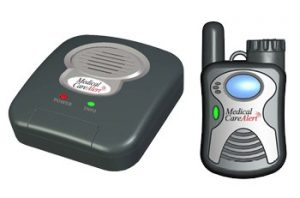
Home & Away Ultra GPS Medical Alert System
This mobile system comes with a waterproof, lightweight device that can be worn on a lanyard or belt clip. The device has two-way communication and uses GPS, WiFi, and cellular location systems to pinpoint your location in case of an emergency. It has a three-day battery life per charge and can have added fall detection for an extra $10 per month. = This system starts at $36.62 per month.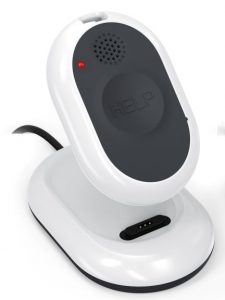
Home & Away Elite
Has the exact same features as the mobile system above except this system comes with automatic fall detection. = This system is $45.79 per month.
Medical Guardian
Medical Guardian is actually ranked the number one medical alert system by many reviewers, consumers, and clients everywhere who have tested it and used it. The company has one more plan than Medical Care Alert, but other than that the packages mentioned below are very similar.
Classic Guardian
An in-home safety system that comes with a base station connected to your landline phone number; a waterproof pendant or wristband help button option, plus, the button can be pushed at a maximum of 1,300 feet away from the base unit. = This system is $29.95 per month with no equipment or activation fees.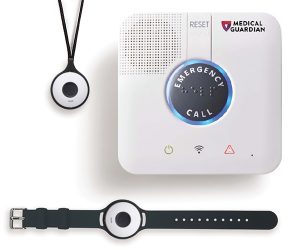
Home Guardian
Another in-home system that comes with a base station connected to either a landline or a cellular device, a waterproof pendant or wristband emergency button, 600 feet of protection from the base station, and this plan has fall detection capabilities (extra $10 per month). = This system is $34.95 per month with no equipment or activation fees.
Mobile Guardian
A GPS enabled tracking plan that comes with a mobile medical alert unit and a waterproof pendant or wristband emergency button. The mobile unit has a speaker with two-way communication to speak to an emergency responder, but the unit must be within 350 feet of the emergency button if it gets pushed. = This system is $49.95 per month with no equipment or activation fees.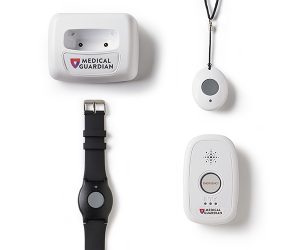
Active Guardian
A system similar to the Mobile Guardian, accept this plan also has WiFi connection capabilities to help pinpoint your location along with the GPS tracking. It comes with a single mobile unit, and can only be worn on a pendant (waterproof). This plan also has fall detection if enabled (extra $10 per month). = This system is $44.95 per month with no equipment or activation fees.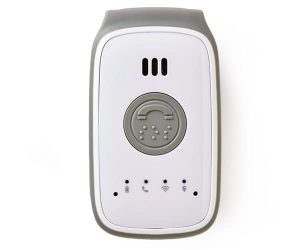
Freedom Guardian
This new plan is an on-the-go system with GPS that is all built-in into a smartwatch. The watch has a button on the side that can be pressed to speak with an emergency responder ( via two-way communication), plus, the watch can also do simple tasks such as calendar alerts and reminders for the wearer. (with an extra fee of $5 per month) = This system is $49.95 per month + $99 dollars for initial smartwatch purchase; still no activation fee.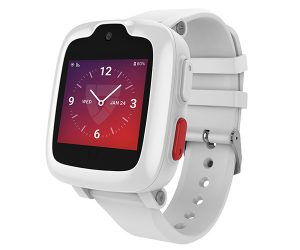
Final Thoughts
As mentioned before, Medical Care Alert and Medical Guardian are both very similar. The differences that were found between them include having a free trial, fall detection options, payment plans, and there was one extra package offered by Medical Guardian that Medical Care Alert didn’t have. Overall, the only problematic differences found between the two companies include one company not having a free trial and also not having enough fall detection options for its products. This company being Medical Guardian is shocking, as it does so well when it’s compared to other competitors in the medical alert industry. Therefore, the responsibility of deciding which company is better is left up to you and your loved ones. But make sure you take into consideration the similarities and slight differences between them.
Related Posts

Medical Alert Bracelet For Breast Cancer Patients: Essential Information for Emergencies
Read More

Medical Alert Watch With No Monthly Fee
Read More

Why Seniors Living At Home Need a Medical Alert System
Read More

Activities of Daily Living: A Comprehensive Guide to Maintaining Independence
Read More
Sponge Bath: Bed Bathing Seniors
Read More

Read More

